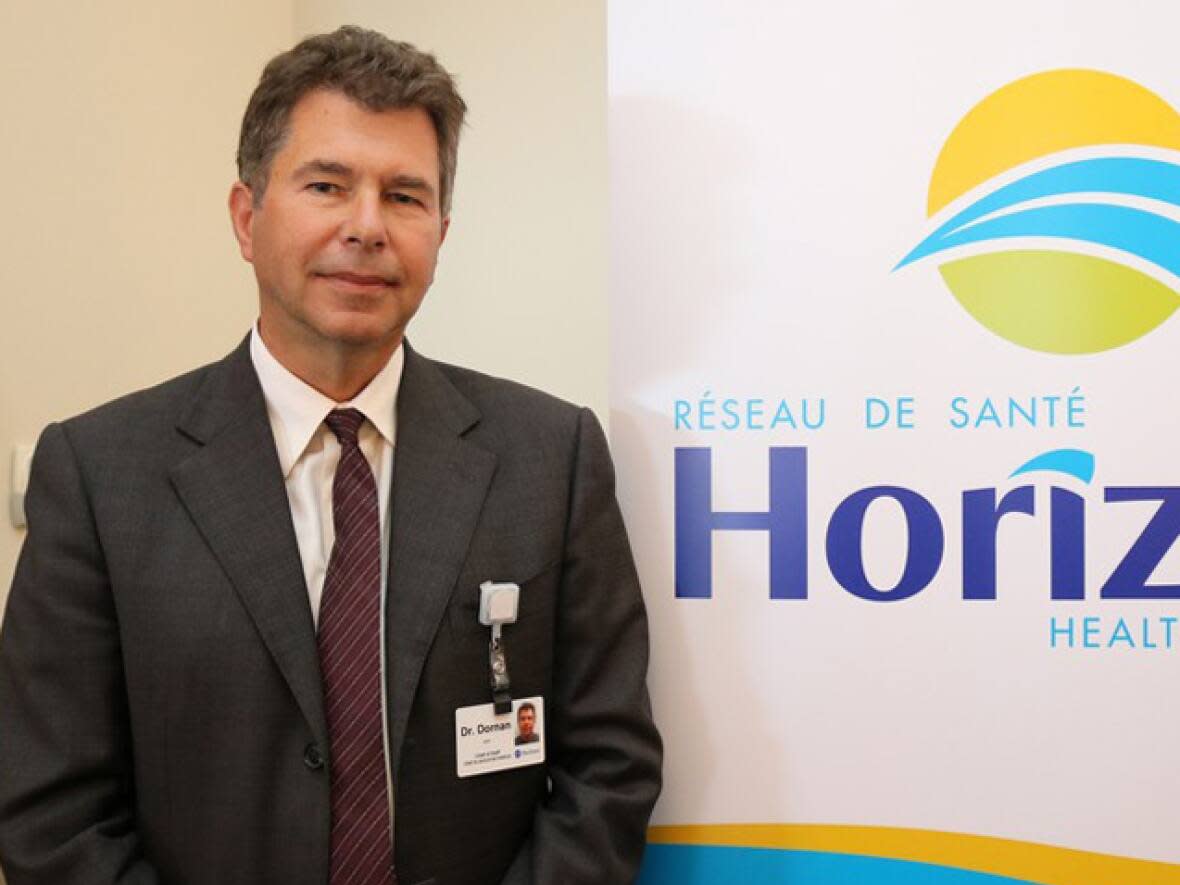Horizon CEO says knee, hip surgery patients will be rerouted, Moncton backlog reduced by this fall

The head of Horizon Health Network is commending orthopedic doctors at the Moncton Hospital for calling out problems and knowing their limits.
Dr. John Dornan, the president and CEO of the health authority, also said patients will be re-routed to reduce the backlog at the hospital "within months and certainly by the fall."
This week, orthopedic surgeons at the hospital announced they will not take any more referrals because of the long wait list for knee and hip surgeries.
Dr. Andrew Clark said poor management is at the root of a heavy backlog of patients, and it has been a problem since he started working there in the '90s.
Staff shortages not the only reason for backlog
Dornan said staff shortages, summer holidays, and COVID-19 sickness among workers have created a "perfect storm" at most hospitals in the province.
But for orthopedics in general, he said backlogs are often created because the issues are not considered urgent.
"Orthopedic surgeries are often considered, quote, elective. And that's really not a good term," he told CBC's Information Morning. "These people need surgery."
Clark previously said he has 250 patients referred to him, and he can't accept any more. Dornan said this is the responsible thing to do.
"I have to take my hat off to a group of physicians that recognizes that they're stretched too thin. And by taking more referrals, it just makes the list longer," he said.
"There are other surgeons in this province that, you know, might be able to help out."
'Backburner' cases
Dornan said going through the COVID-19 pandemic, the hospital has focused on the emergent and urgent cancer cases. He said orthopedic surgery gets put on the back burner.
"The provincial health plan says 'Attend to orthopedic patients' surgical needs to get to a reasonable wait list.' And so Dr. Clark is right to call us on this when we can and are doing better," he said.
Dornan said the authority is forming a short-stay unit for patients needing orthopedic surgeries.
"These beds would not be blocked or occupied by other people. So our surgeons could do the surgery, meet the patients for a short period of time in this pod, and then be able to let them go home," he said.
Another measure is to expand operating room access at the Sackville Memorial Hospital. He said the hospital has two operating rooms, but only one is being used.
The second will be opened and used for orthopedic surgeries, he said, to take on some Moncton Hospital backlog.
"While these ORs won't help deal with the complex orthopedic surgeries, they will be able to help with some of the easier, less invasive surgeries," he said.
At the Moncton Hospital, nine out of 10 patients waited 595 days to get a hip replacement and 853 days for a knee replacement.
This is hundreds of days more than at other hospitals in the province, where nine out of 10 patients waited 470 days for a hip replacement and 563 days for a knee replacement.
Dornan said there isn't much concern about patients having to travel because they can still get after-surgery care close to home.
Officials have also been trying to ramp up recruitment, he said, and have been focusing that recruitment effort on finding operating room staff.
Dornam said to do this, the authority's working with local and international nursing schools. This includes Université de Moncton, University of New Brunswick, Oulton College, Beal University of Maine, and more recently, Manipal University in India.
"We have just signed on recently to get their graduates," he said. "All these things don't happen overnight."
He said recruitment isn't enough to solve the staffing problem if people burn out and leave. That's why it's also important to make the workday less stressful.
"We're trying to have a better nurse-patient ratio that will make the workday more tenable, safer," he said.


